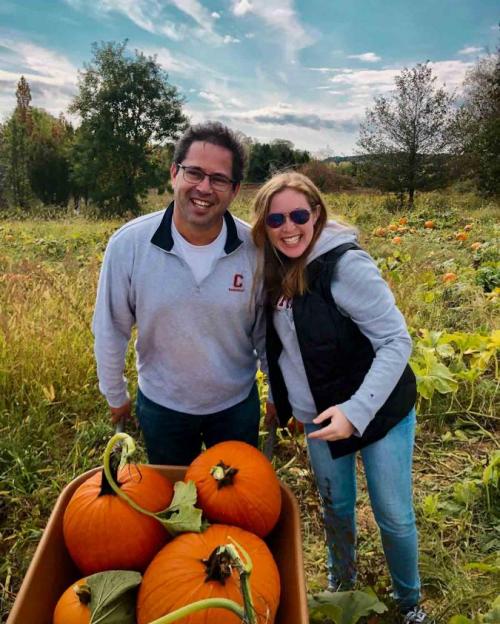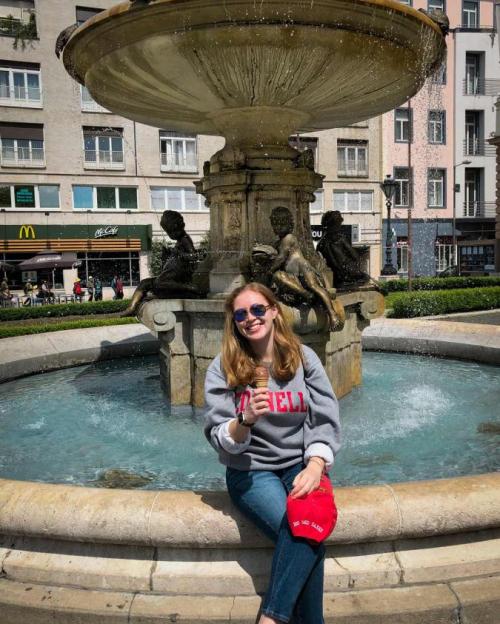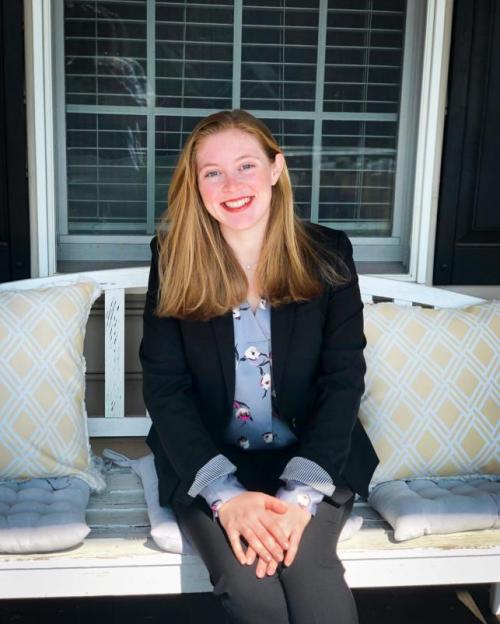Sydney Eisenberg
Economics and French
Furlong, Pa.
What are the most valuable skills you gained from your Arts & Sciences education?
The most valuable skills I have gained from my Arts & Sciences education are to critically analyze and evaluate information and situations I encounter, to communicate effectively with an awareness of my audience and to understand and appreciate the world around me in a greater cultural context that incorporates other individuals' backgrounds and perspectives. I have also learned important technical skills such as coding in Python, analyzing data in Stata and Excel and writing documents in LaTex. Beyond the technical skills themselves, learning these skills has taught me several soft skills, including how to quickly and efficiently identify and resolve errors. My familiarity with these languages/programs has also made me a more well-rounded student in a world that is increasingly dependent on technology and computers (and computer programming).
What is your main extracurricular activity and why is it important to you?
My main extracurricular activity was the Big Red Marching Band (even though I was unable to continue active involvement in my junior year due to academic commitment). I absolutely love music, and I knew that I wanted to stay involved with band in some capacity when I came to Cornell. I found this home in the BRMB. Not only was I able to participate and have fun playing music (and make some awesome memories over my first two years), but I also had the opportunity to serve as a show committee chair, where I was partly responsible for selecting the music and writing the drill for our field shows that we performed during football games. I had a great time getting excited to parade around campus before football games, I learned a lot about Cornell traditions (including the actual lyrics to the Alma Mater, Evening Song, and Give My Regards to Davy!) and I also got to stay involved with music and make friends while doing so.
What Cornell memory do you treasure the most?
Over my sophomore and junior years, I discovered my favorite place to study: the Economics Undergraduate Lounge. It had a large square table with comfortable desk chairs (that one might expect to find in a conference room), a large dry erase board with different colored markers, a couple armchairs where students could sit and read and a cozy sofa that was good for chatting with friends or taking an impromptu nap between classes. It was the perfect place to study by yourself or organize a study group for an upcoming prelim exam, and it was also the perfect location to casually run into professors or meet other economics students. But one thing made it even better: every Wednesday, the economics major coordinator (then Sarah, now Allison) would bring in a food (it changed every week) and a box of tea. As an avid tea-drinker, it made my day to be able to study and also heat up a fresh cup of Earl Grey with a sweet treat or savory snack on the side. It was such a wholesome, kind tradition that the econ major coordinator would do to remind us to take a break from work! One of my best friends and I also bonded over how thoughtful it was to have that weekly routine of popping into the undergrad lounge to say hi and grab a cup of tea.
I also treasure the time that I spent abroad in Paris, but I don't consider that as much of a Cornell memory as a general "undergraduate experience" memory.
Who or what influenced your Cornell education the most? How or why?
I would say that my family has influenced my Cornell education the most. Whether as a support system (no matter the distance) or as a sounding board for my ideas about what classes I should take, my family has always been there for me throughout my time at Cornell. My father's own academic path during his time at Cornell inspired me to pursue a similar path, and I fell in love with economics and decided to apply to the honors program to pursue research more in-depth. My mother always encouraged me to take breaks from my academic pursuits to focus on forging strong friendships and to enjoy life outside of classes. Both of my parents constantly urged me to explore all of my interests and academic strengths and to take risks, whether by studying abroad or by taking challenging classes to push myself to the limits. Without their support and encouragement, especially when I needed it most, I would not have been able to achieve the level of success that I have today.
If you were to offer advice to an incoming first year student, what would you say?
Time flies. It really does. I feel like I blinked and suddenly I'm less than two months from commencement. The advice I would offer to an incoming first-year student is: cherish every moment you have here, and take advantage of the opportunities you have to not only do what you love, but to try new things and explore. Before you know it, you'll be weeks away from your own commencement wondering where that time went and looking forward to the future and "real life." But this is it. This IS life. We may try to ignore the cliché, but it really is about the road, not the destination. Do what you love because, after college, it may be harder to participate in your hobbies. Try new things because they may never be presented to you as easily in the future as they are here at Cornell. Explore because you might not have the time to do so once you've graduated. So enjoy every moment that you can and make the most of the time you have here.
Every year, our faculty nominate graduating Arts & Sciences students to be featured as part of our Extraordinary Journeys series. Read more about the Class of 2021.






